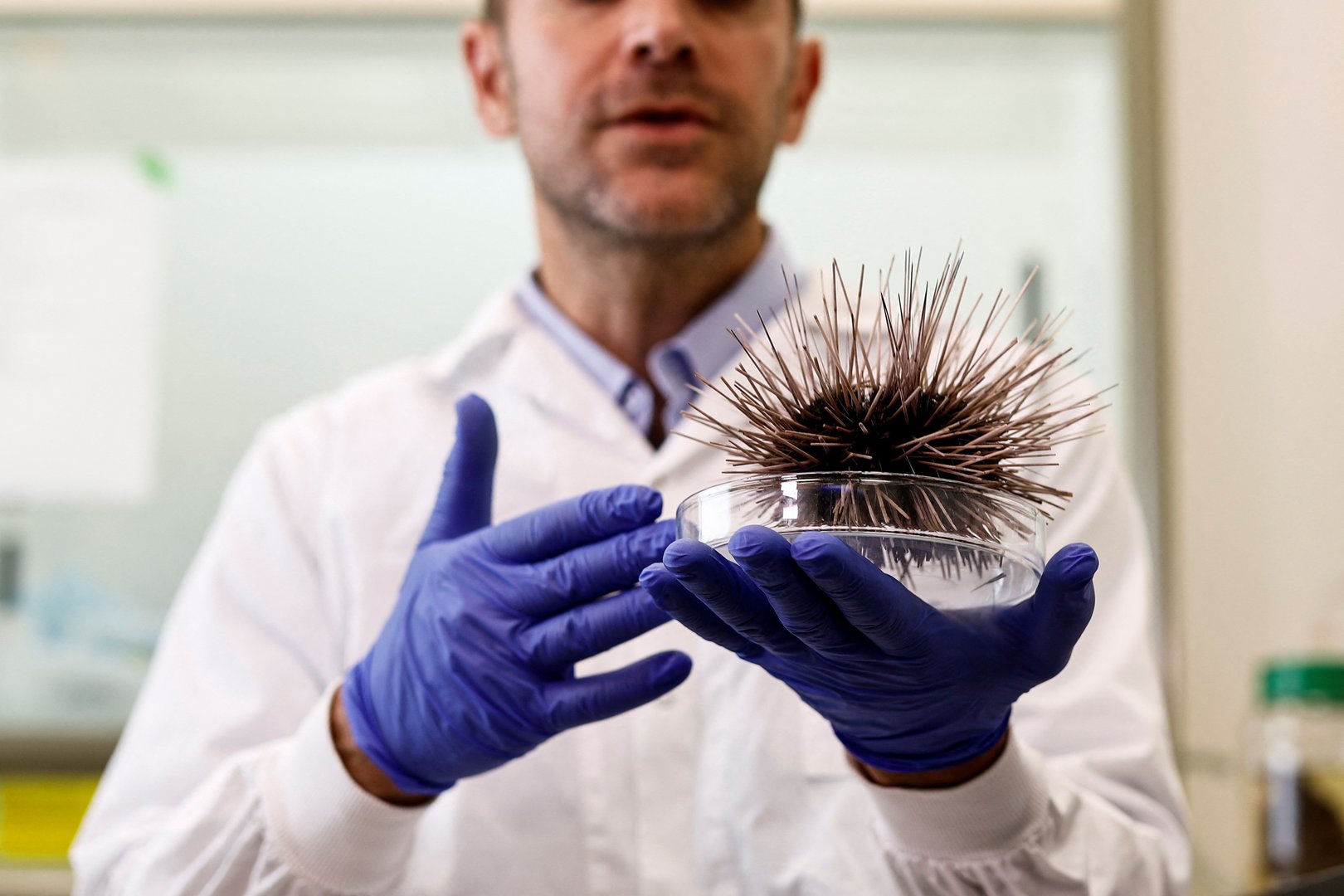Although they are boneless creatures, sea urchins are prickly enough to be feared by those who step on them. This past month though, off the Gulf of Aqaba, Tel Aviv University researchers from the Interuniversity Institute for Marine Sciences in Eliat discovered that within a short, two-day span, black sea urchins were disappearing from coral reefs off the coast of Greece and Turkey.
Led by Dr Omri Bronstein, a senior lecturer at the university, the research team found that, stripped of their flesh, these now-skeletal urchins were falling victim to a pathogen that reportedly hollows out the urchin so that only its spines remain.
“Cyprus, from where it’s positioned in the Mediterranean, is crucial for understanding this issue,” Dr Bronstein remarks.
Because the Levantine Basin closely links Cyprus to the shores of Turkey and Greece where the pathogen has already taken hold, says “regional collaboration will be vital to staying on top of a story that is already evolving rapidly.” While, at present, there are no signs of the disease in Cypriot waters, the pathogen is spreading south, and once its mortality expands, it will likely reach Cyprus – and then, other places.
Cyprus’ Department of Fisheries and Marine Research states that they are aware of this issue and “are, of course, concerned as there are no borders on the sea” to prevent the pathogen from moving.
In a separate interview conducted by CNN, Dr Bronstein revealed his team’s belief that the pathogen is transmitted through water – without physical contact between urchins. When asked to elaborate for his interview with the Cyprus Mail, he explained that it is more likely that this pathogen was transported to the Mediterranean by ships traveling from the Caribbean.
Interestingly, this pathogen may not be new to the ocean’s waters and could, instead, be a variant of a parasite that eliminated urchin populations in the Caribbean during the 1980s – and again in 2022. Back then, this dive in urchin-population led to an over-bloom of the algae that black sea urchins typically kept in check. Without urchins to eat away at the reef’s algal build-up, waters became cloudy and too warm for coral to properly thrive. Dr Bronstein confirmed that the effects of this pathogen in the Caribbean “was devastating, as it completely changed the coral reefs in ways they still have not recovered from”. It is also possible, though, that this pathogen is not a variant at all but, instead, a dormant disease that environmental changes in temperature could have triggered into attacking.
Coral loss – like that found in the Caribbean – could occur in Cyprus should the pathogen migrate, but the pathogen, for the time being, is harming only black sea urchins, a non-native, invasive species that reproduces in Cypriot waters before moving westward. As a result, researchers are not convinced that this pathogen would impact Cyprus as severely as it has Greece and Turkey given that our native urchins may have the capacity to withstand the introduction of this new bacteria.
Dr Bronstein also finds the presence of this invasive species as positive – but for different reasons.
“We already lost the black sea urchin to the appearance of the pathogen in the Red Sea. While originally thought to be a pest in Mediterranean waters, the black sea urchin population off of Cyprus may now be the only hope left for the species,” he says.
And yet, without a way to stop the pathogen’s movement, its presence in Cypriot waters still proves to be a gamble not only for urchin populations here but also for those that will be impacted should the pathogen move beyond Cyprus.
Ultimately, Dr Bronstein reminds us that this problem, while devastating, is not one that is ours to control.
“Humans need to be a bit more humble and understand that we can do very little when it comes to pandemics of this magnitude, especially ones in the marine. We don’t have the capacity to treat our oceans. In this case, we don’t have a Moderna or Pfizer,” he jokes.
“Instead, it is our job to practise prevention, but there is nothing we can do to stop the pathogen or protect organisms in the field.”
One such example of prevention involves land-based operations that take healthy black sea urchins, raising them out of the ocean until they can be safely rehabilitated – should the rest of the population be contaminated. This urchin disease, as Covid-19 tried to show us, is, at the end of the day, a collaborative issue. Dr Bronstein reminds us, in other words, that “this problem is a singular problem for the entire region – not one that can be solved individually.”







Click here to change your cookie preferences